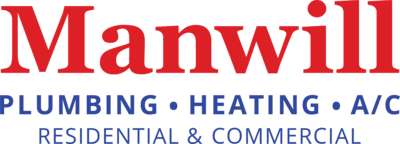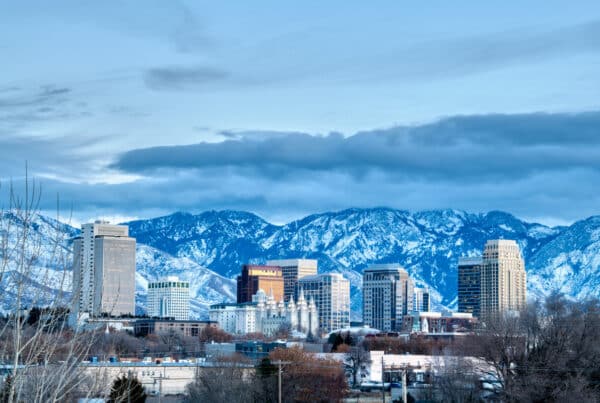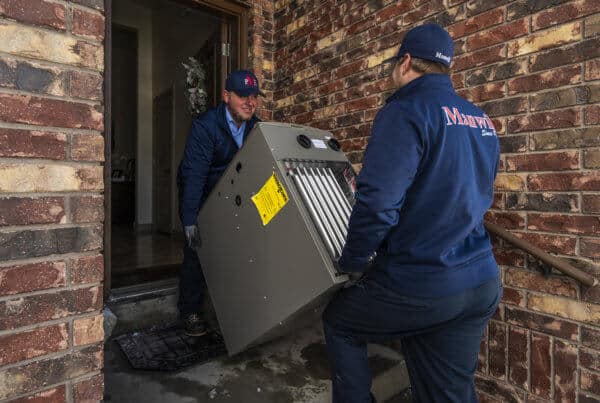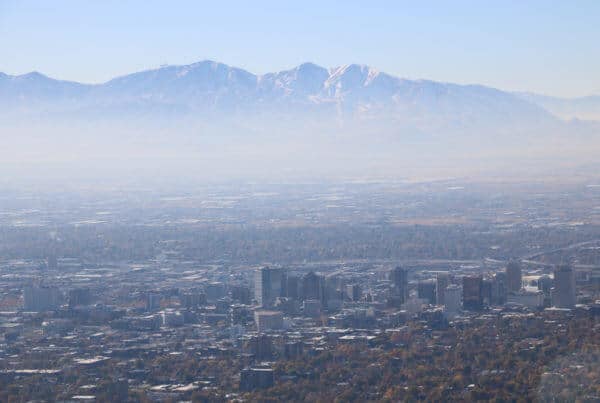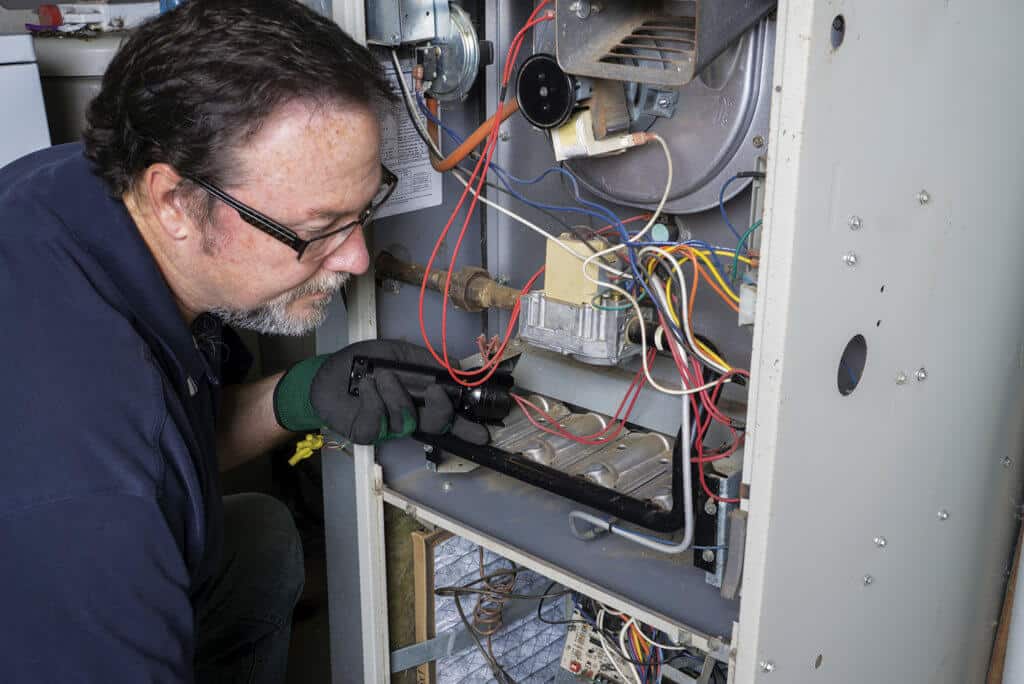
Furnace tune-ups ensure that your heating system runs through every season. Another one of the reasons why an annual furnace inspection from a knowledgeable HVAC pro is so important is that it can minimize your risk of causing irreversible damage to your furnace or heating system. There are several other advantages of furnace tune-ups and inspections, including:
- When you maintain your furnace, it works more efficiently, eliminating waste of energy and reducing your monthly heating costs.
- Regular furnace tune-ups from a licensed HVAC technician can prolong the life of your heating system to ensure that you sustain critical components.
- Your HVAC expert will detect and fix any minor issues uncovered during your furnace tune-up service. They will also address any severe problems that include heating system repairs or replacement.
- Routine maintenance will help avoid fires and other dangers, such as unhealthy gas fumes and deadly carbon monoxide leaks.
Manwill offers furnace tune-up appointments in Draper, Midvale, Millcreek, Murray, Sandy, and throughout Salt Lake and the surrounding area. Whether you need maintenance services or a complete heating system repair, trust Manwill to get the job done. But, before you schedule your appointment, here is an idea of what you can expect from your furnace tune-up service.
What You Can Do Before a Furnace Tune-Up
While there are some steps of the furnace tune-up process that you can’t control, you can do your part to help maintain your heating system’s efficiency. Some of the tips our furnace technicians recommend include cleaning or changing your air filters on a regular basis, especially during the seasons you use it most. It would help if you also kept your blower motor bearings lubricated throughout the season. If your heating system uses oil cups, you should add about 3 drops of oil per year to ensure lubrication. A lot of new motors have permanently sealed bearings and do not need oiling.
You should also check your blower unit regularly and free it of any dirt. You can do this by vacuuming the furnace periodically. When you do this, make sure you shut off the circuit breaker beforehand.
Along with cleaning your furnace, you can also test any exposed ductwork joints for air leaks. One technique for doing so includes holding up a lit stick of incense to the joints while the furnace is running to locate air leaks. If you notice any air, seal up the areas using metal tape.
Another step you can take is checking your thermostat’s accuracy. Put an outdoor thermometer on the wall next to the thermostat. Run the furnace for several minutes, and then compare the thermometer’s reading to the displayed room temperature. If you notice any discrepancies, schedule an appointment with our licensed HVAC technicians.
What to Expect During a Furnace Tune-Up Appointment
When one of our Manwill technicians comes to your home or business for a furnace tune-up service, you can expect them to run through an inspection checklist. However, the services performed during the furnace inspection may vary, depending on your heating system and what comes up during the service.
Although the needs of your furnace tune-up will vary, here is a list of things you can expect the technician to do:
- Examine the heat exchanger for signs of corrosion and cracks or separations.
- Check the blower and clean its components, including removing the blower wheel and any debris or blockages.
- Test the seal on the blower access door.
- Check the air intake grills for any blockages.
- Perform an amp-draw test on the blower motor and compare the results to the unit’s listed specifications.
- Check the burner for proper ignition and testing the flame sensor for accurate operation.
- Lubricate all the motor’s moving parts to reduce friction. When there’s friction, the motor has to work harder, which requires more electricity, and it could also result in a premature failure.
- Check all electrical connections and examine the wiring for signs of rust and corrosion.
- Test the thermostat calibration.
- Examine the flue for proper operation.
- Test the furnace’s safety controls.
- Check the belts (if your furnace has one) for signs of wear or cracks.
- Test that the system’s startup cycle is functioning correctly.
- Check the furnace’s air filter.
You can also expect your Manwill technician to check other areas of your heating system that may require attention.
Furnace Tune-Ups at Manwill
Manwill offers furnace tune-ups throughout Draper and other Utah locations. Along with our scheduled heating services, we also offer planned service agreements. If you only have a furnace in your home we can set up an annual visit to inspect and service your furnace. Some customers prefer two visits (spring and fall) if you have a furnace and air conditioner, and others prefer four visits for commercial accounts (spring, fall, with mid-winter and mid-summer filter changes). Our HVAC system experts will design a plan for whatever you need, Manwill will make it easy.
Our planned service agreements will ensure that you receive the routine tune-up you need. We will contact you to set the appointment. And since we have a record of your equipment, we can bring the proper filter or any other necessary parts! You can also schedule a furnace tune-up by contacting Manwill today. No matter which service you prefer, we look forward to hearing from you.
Contact Manwill to schedule your tune-up or furnace repair.
Common Furnace Questions
What do I do if I can't see the pilot light in my furnace?
If you can’t see the pilot light in your furnace, you probably need to relight it. First, check the owner’s manual or label on the furnace for any specific instructions. If those aren’t available, find the “on/off” switch and switch it to “off”. Wait about five minutes, turn the knob to “pilot” then hold down the “reset” button. Use a long lighter to relight the pilot light, then release the “reset” button. If you are not comfortable doing this yourself, don’t hesitate to call the experts at Manwill for help.
Why is my furnace leaking water?
If you’ve found that your furnace is leaking water, the cause could be a condensation leak. These leaks can come from a break in the condensation line, a clogged condensation tube, or issues with the condensation pump, which could all lead to water leaking on the floor.
How much does it cost to replace a furnace?
The cost of replacing a furnace can vary based on the model. The type of furnace you’ll need to buy will depend on a few factors, such as the size of your house and the furnace’s efficiency rating. On average, purchasing and installing a new furnace costs about $4500.
How long does a furnace tune-up take?
On average, a furnace tune-up can take about 1-2 hours. The exact time to tune-up your furnace will depend on how much maintenance your furnace will need, along with your HVAC system’s overall cleanliness and condition. Any additional repairs will take more time.
How long does a furnace last?
A well-maintained furnace can last up to 15-20 years. To maintain your furnace, regularly change the furnace filter every three months. An annual furnace inspection and tune-up are also recommended to keep your furnace running smoothly. To schedule any furnace maintenance, contact Manwill.
Does a gas furnace work without electricity?
A gas furnace does not function without electricity. One critical component in a gas-powered furnace uses electricity: the blower motor that powers the fan. While yours could still create heat without electricity, it wouldn’t have the fan to move that heat to the rest of your home. As a safety precaution to prevent overheating, the furnace won’t operate unless the fan has electricity to run.
